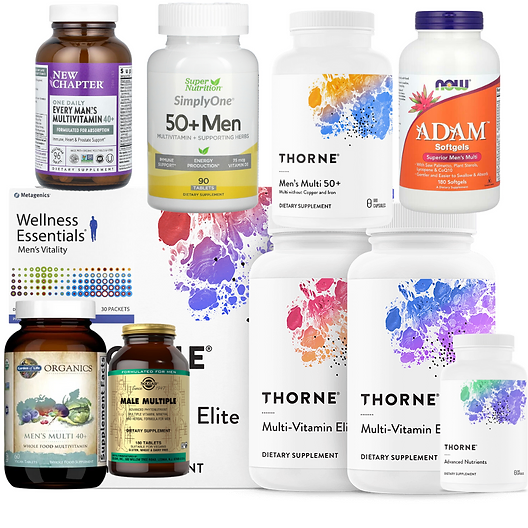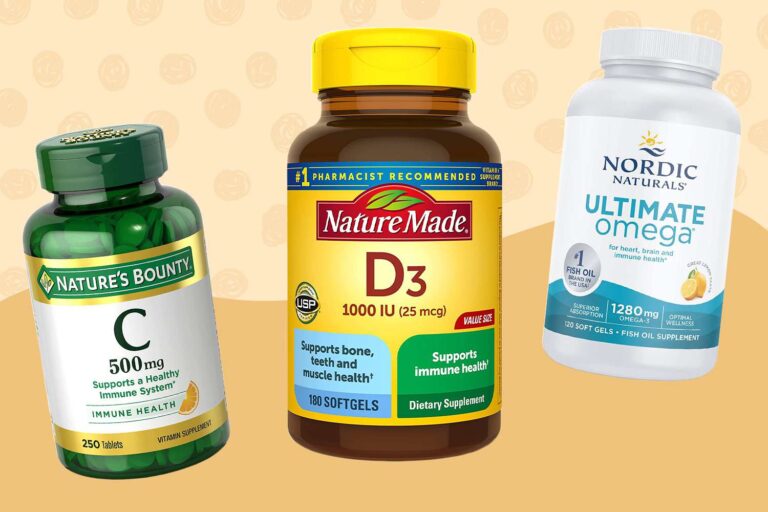Everything You Need to Know About Vitamins and Supplements
Vitamins and supplements have become a daily routine for millions of people looking to power through their day, improve their workouts, or simply enhance their overall health. But with so much information out there, it can be tricky to figure out what you genuinely need—and what might just be a marketing gimmick.
This guide is here to help. We’ll walk you through the importance of vitamins and supplements, explain the difference between the two, and provide you with actionable advice on choosing and incorporating them into your routine.
Whether you’re an athlete aiming to boost endurance, a health enthusiast looking to stay sharp, or someone curious about bridging potential nutritional gaps, this guide will give you the tools you need to make informed choices.
Vitamins vs. Supplements – What’s the Difference?
Before we dig into specifics, it’s crucial to understand the difference between vitamins and supplements.
Vitamins
Vitamins are organic compounds that your body needs to function properly but cannot produce on its own. They are essential for key processes like energy production, immune defense, and tissue repair. You most often get vitamins naturally, through food. Examples include vitamin C from citrus fruits and vitamin D from sunlight exposure.
Supplements
On the other hand, supplements aren’t naturally occurring in your body. They’re manufactured to provide nutrients that may be missing from your diet—this includes vitamins, minerals, amino acids, or herbal products. Supplements can come in various forms, including capsules, powders, and liquids, and they’re designed to complement your nutritional needs.
Essential Vitamins and Where to Find Them
There are 13 essential vitamins your body requires, each with unique benefits. Here’s a breakdown of some of the key players, where to get them, and how much you need daily.
Vitamin A
- Benefits: Supports strong vision, promotes healthy skin, and aids the immune system.
- Sources: Sweet potatoes, carrots, spinach, kale, and fish oils.
- Recommended Daily Intake: 700–900 mcg for adults.
Vitamin B Complex
- Benefits: Includes eight B vitamins that help convert food into energy, support brain function, and boost cell metabolism.
- Sources: Whole grains, eggs, dairy, nuts, meat, and leafy greens.
- Recommended Daily Intake: Varies by type. For example, vitamin B12 is 2.4 mcg.
Vitamin C
- Benefits: Strengthens immunity, promotes wound healing, and enhances iron absorption.
- Sources: Citrus fruits, red bell peppers, strawberries, kiwis, and broccoli.
- Recommended Daily Intake: 75–90 mg for adults.
Vitamin D
- Benefits: Crucial for bone health, it also supports the immune system and mood regulation.
- Sources: Sunlight, fortified milk, salmon, and mushrooms.
- Recommended Daily Intake: 600 IU.
Vitamin E
- Benefits: Acts as an antioxidant, protecting cells from damage. It also supports skin and eye health.
- Sources: Almonds, sunflower seeds, spinach, and avocados.
- Recommended Daily Intake: 15 mg.
Vitamin K
- Benefits: Plays a crucial role in blood clotting and bone metabolism.
- Sources: Leafy greens like kale, broccoli, and Brussels sprouts.
- Recommended Daily Intake: 90–120 mcg.
How Supplements Help Fill Nutritional Gaps
Even with the perfect diet, it can sometimes be difficult to meet your daily nutritional requirements. This is where supplements can play a significant role, particularly for individuals with unique dietary needs or health limitations.
Common Dietary Supplements and Their Functions
- Calcium and Magnesium: Support healthy bones and muscles.
- Iron: Boosts red blood cell production, preventing fatigue.
- Omega-3 Fatty Acids: Reduce inflammation and improve heart and brain health.
- Probiotics: Promote gut health by increasing good bacteria.
- Protein Powder: Assists muscle recovery and growth, especially for athletes.
Choosing the Right Vitamins and Supplements
The supplement aisle can feel overwhelming, with endless options to choose from. Here’s how to simplify your decision-making process.
Focus on Quality
Look for supplements that are third-party tested (e.g., USP Verified), ensuring they meet high industry standards for purity and potency.
Understand Dosage
More doesn’t always mean better. Stick to recommended daily doses since certain vitamins (e.g., vitamin A or D) can be harmful in excessive amounts.
Consider Form
Choose the form that works best for you. Gummies might be fun and convenient, but capsules or powders may offer higher concentrations of nutrients.
Watch for Interactions
Some supplements can interact with prescription medications or each other. For instance, taking calcium supplements alongside iron can reduce absorption. It’s always wise to consult with your healthcare provider.
Best Practices for Incorporating Supplements into Your Routine
- Set a schedule. Take certain vitamins, like B-complex and vitamin C, in the morning since they boost energy. Fat-soluble vitamins like A, D, E, and K are better absorbed with meals.
- Pair complementary nutrients. For example, take iron with vitamin C to improve absorption or pair calcium with vitamin D for better bone health.
- Don’t skip meals. Remember, supplements are meant to fill gaps, not replace a balanced diet.
Debunking Myths About Vitamins and Supplements
Myth 1: “More is better.”
Truth: Over-supplementing can lead to toxicity, particularly with fat-soluble vitamins that your body stores.
Myth 2: “Supplements can replace food.”
Truth: Whole foods aren’t just about vitamins—they also contain fiber, antioxidants, and other beneficial compounds that supplements can’t replicate.
Myth 3: “All supplements are created equal.”
Truth: Always check for certifications and consult with healthcare professionals before choosing supplements. Brand reputation matters.
Talk to an Expert for Personalized Guidance
Choosing the right vitamins and supplements can feel overwhelming, but it doesn’t have to be. Consulting with a healthcare professional or registered dietitian is the best way to ensure you’re taking what’s right for your unique needs.
When done thoughtfully, incorporating vitamins and supplements into your routine can enhance your overall health, boost your energy, and help you meet your wellness goals.







